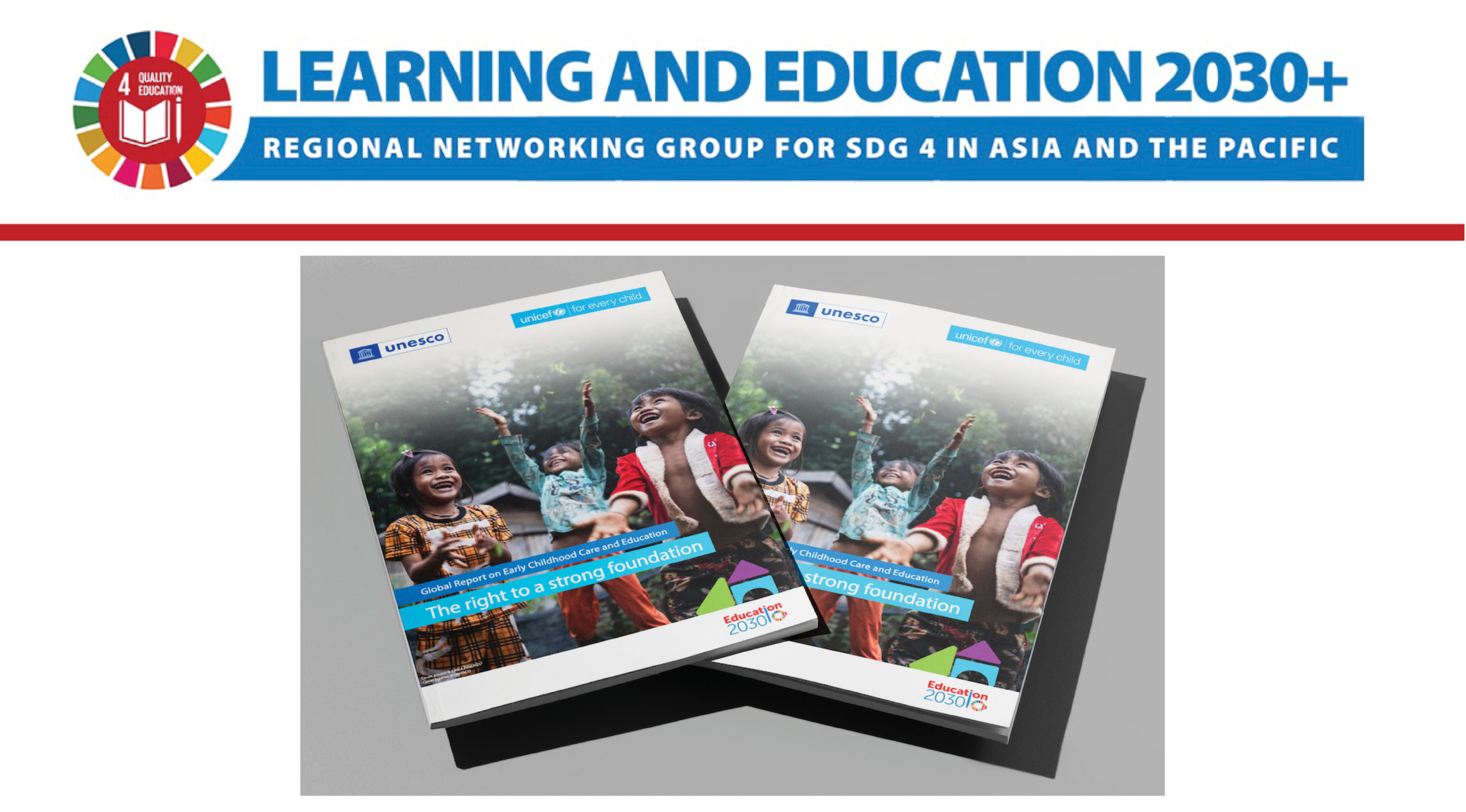UNESCO-UNICEF's New Report "Building a Strong Foundation Through Early Childhood Care and Education"
UNESCO and UNICEF published a new report, “Building a Strong Foundation Through Early Childhood Care and Education.” This comprehensive publication highlights the critical importance of inclusive and quality early childhood care and education (ECCE) in promoting school readiness, foundational learning, and lifelong well-being.
Inclusive and quality early childhood care and education (ECCE) are vital for promoting school readiness, foundational learning, and lifelong well-being. Yet almost 60% of children in low-income countries do not have access to early care and learning opportunities. To meet national targets of providing at least one year of organized learning before primary school, low-income and lower-middle-income countries must fill an annual financial gap of USD 21 billion and recruit at least six million more educators before 2030. The world is not on track in meeting Sustainable Development Goal (SDG) Target 4.2 committing countries to ensure that all girls and boys have access to quality early childhood development, care and pre-primary education by 2030. There is solid scientific evidence that early opportunities matter for child development outcomes. But inequalities start early and persist throughout life. Many children around the world, especially those living in low-income countries and facing disadvantage, do not have access and exposure to quality care and learning experiences early in life that prepare them for school success and foundational learning. Access to quality Early Childhood Care and Education matters for building a strong foundation and flourishing throughout life.
The call to transform education must begin with the youngest children.
This report is in response to a commitment in the Tashkent Declaration and Commitments to Action for Transforming Early Childhood Care and Education in which governments and the international community reaffirmed their commitment to the right to education, beginning with the youngest children. The report is the first in a biennial series dedicated to monitoring achievement of SDG Target 4.2. This edition explores how children learn and develop and how the key actors in children’s early environments – parents, families, educators and the community at large – can be leveraged through public policies and social programmes to improve young children’s learning and wellbeing.

